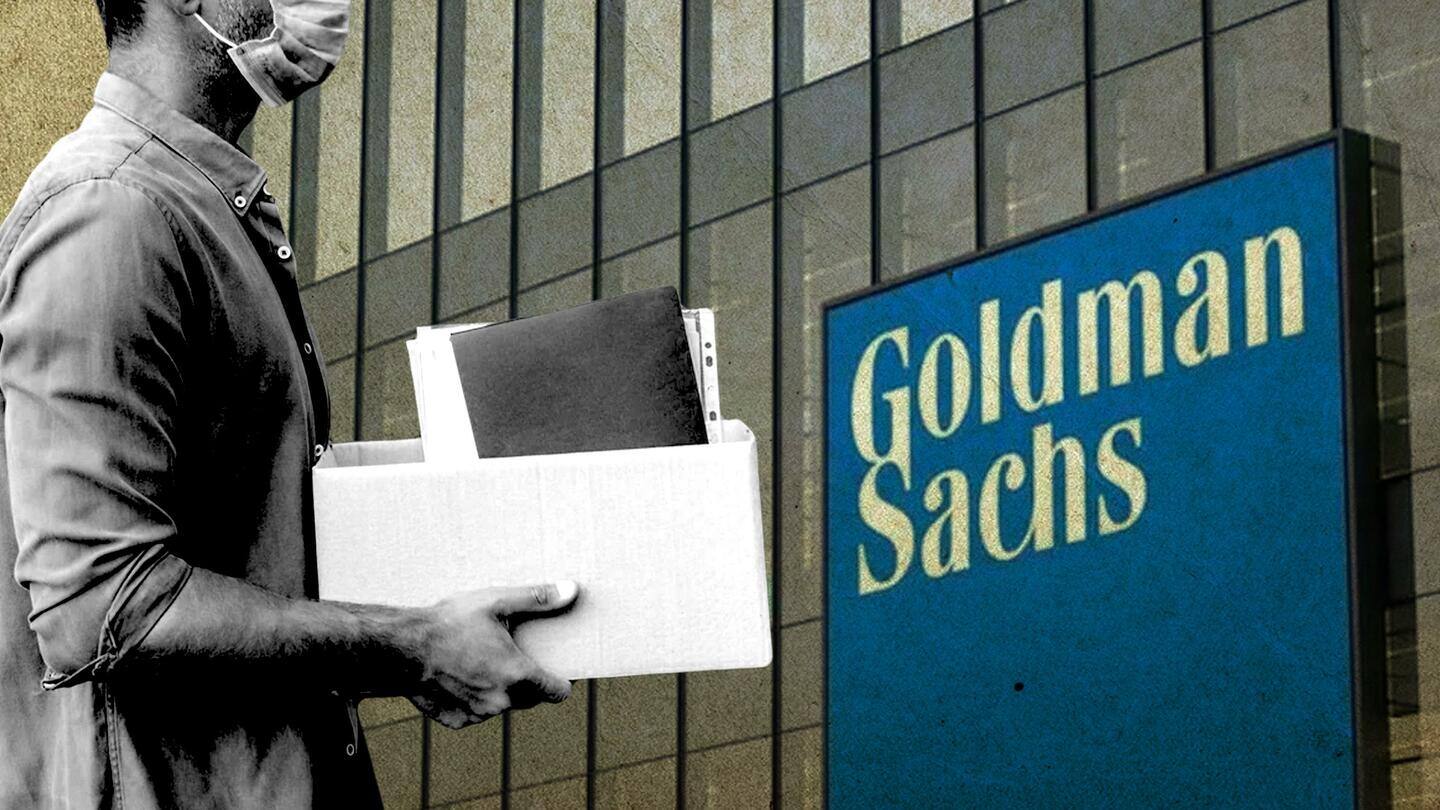
Goldman Sachs to fire 3,200 employees this week
What's the story
Banking and investment giant Goldman Sachs is gearing up for one of its biggest rounds of job cuts. The company is planning to eliminate around 3,200 roles, as per Bloomberg. Last month, it was reported that the firm planned to cut 4,000 jobs or 8% of its total workforce. At the end of the third quarter, Goldman Sachs had 49,100 employees.
Context
Why does this story matter?
This week, Goldman Sachs will join the long list of companies that have decided to recalibrate their workforce to suit the post-pandemic world. It will be the first major financial firm in a list dominated by tech giants. The company engaged in a hiring spree and scaled its consumer business during the pandemic, which has now forced it to make some necessary cuts.
Layoffs
Investment banking, consumer divisions likely to be most affected
As per Reuters, the layoff process would begin on Wednesday. The job cuts are expected to affect most major divisions of Goldman Sachs. However, the firm's investment banking division is expected to be the most impacted. The company's consumer banking is another area most likely to be hard hit. The financial giant recently decided to scale back plans for Markus, its direct-to-consumer unit.
Not unusual
New job cuts will be in addition to annual layoffs
Goldman Sachs is no stranger to cutting jobs. The company has an annual job-cutting program, which was put on hold for two years due to the pandemic. In September last year, however, it was brought back. The firm usually trims 1-5% of its staff through that program. However, the new cuts will be in addition to that.
Reasons
Institutional banks affected by slowdown in corporate dealmaking
Goldman Sachs's decision to cull its workforce does not come as a surprise, especially considering the slowdown in corporate dealmaking, due to which institutional banks have suffered. In 2022, investment banking fees nearly halved, while the total value of mergers and acquisitions fell by 37%. Total equity capital market transactions executed by banks were also at their lowest since the early 2000s.